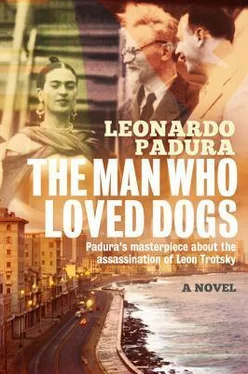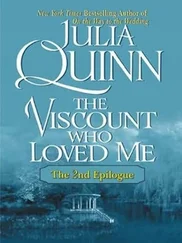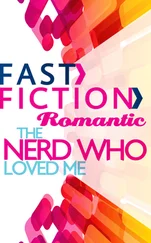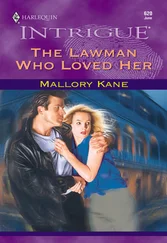Overcome by a bad feeling, I switched course and went in search of the only public telephone working in the neighborhood, at the newspaper and magazine stand that doesn’t sell newspapers or magazines. From there I managed to call Frank’s and Anselmo’s houses, and both of them confirmed that Iván hadn’t been by in a long time. Then I called Raquelita and she said she hadn’t seen Iván in ages and it would be better if she never again saw that “miserable comemierda.” Sitting in the Pontiac, I started to think and saw very few alternatives. I didn’t have the least idea of where to look for him, although I knew I should look for him. In this country, people don’t tend to disappear: when someone gets lost it’s because the sea swallowed them up or because they still don’t have enough coins to make a phone call from the first telephone they find in Miami. But that wouldn’t be Iván. Not at this point, not after everything he had lived through inside the island’s four walls.
Suddenly I was inspired. I started the car and went to the cemetery. That place was deserted after the last burial of the afternoon. I looked for Ana’s grave, in her family’s section, and found everything in the horrifying state of neglect that the dead are always left in. A long time before, the floral wreaths had given way to the dust and dirt that had again taken over a place that didn’t seem to have been visited by anyone for several weeks.
Outside the cemetery, I found another working telephone and called Gisela, Ana’s sister. She didn’t know anything about Iván, either; he hadn’t even called her again after the burial. More and more alarmed, I remembered his family in Antilla, out in the east, with whom he had gone to live for a few weeks after leaving the ward for drug addicts at Calixto García Hospital. Since I was in the neighborhood of El Vedado, I drove to Raquelita’s house (the spectacular mansion that her second husband, a fat jeweler and trafficker whom most of Havana knew as Alcides “the magician,” one of socialism’s winners, had “managed” to get for her) and I managed to get his ex to find, in an old notebook, a telephone number for Serafín and María, the cousins of Iván’s mother, out in Antilla. Raquelita, despite herself, had become infected with my concern and made the call herself, receiving the same response: that the relatives in Antilla didn’t even know about Ana’s death. When I left Raquelita’s mansion, I was weighed down by an additional pain in my chest, since it was obvious that Francesca wasn’t too interested in what could have happened to her father, although it didn’t surprise me to know that she was also trying to figure out how to leave the island — a decision that her brother Paolo and my children, typical representatives of their generation, had already beaten her to.
At night, as I pushed around, rather than ate, what my wife had served, I noticed how the worry had turned into a feeling of guilt, since I was convinced that something very serious had happened. I told my wife about the afternoon’s search and she gave me the idea, which I hadn’t thought of, of going to the police. It seemed ridiculous and excessive to me, but I started to consider the possibility. Something could have happened to him: perhaps he was in the hospital after having been in an accident, or having a heart attack; I don’t know what the hell I thought. And what if he had really gotten on a balsa raft and still hadn’t arrived anywhere or had drowned like his brother, William?. . Almost at midnight I got dressed again, resolved to file a report at the station on Acosta Avenue, and when I was just two blocks away from the police building, I felt a flash of certainty. I went off course and went down to Lawton. I still didn’t know (nor do I know now) why I was convinced of what I would find.
I entered the apartment through the dark and slippery hallway. In my hand I had the sledgehammer that I always keep in the Pontiac’s trunk. In front of the door, I was surrounded by a stench I hadn’t noticed that afternoon, giving proof to my bad feeling. Nonetheless, I knocked several times, yelled Iván’s name and Truco’s. Only silence answered. I didn’t wait any longer. With just one blow of the sledgehammer, I busted open the door, so rotten it almost fell off the frame. The stench intensified immediately, and I felt for the light switch, taking care not to run into the wooden stanchions holding up the structure. When the apartment lit up, I saw what I never wanted to see: in the other room was the bed, sunk in, its legs broken by the weight on top of it. On top of the mattress, also sunk in by the weight, I managed to make out the shape of some legs, an arm, part of a human head, and also something of the yellow fur of a dog below the pieces of wood, concrete, and plaster. I raised my sight and saw that from the ceiling were hanging a few pins of steel, rotted and gnawed away, and beyond that, a flat and remote sky, without stars.
I grabbed one of the steel chairs and dropped into it. Before me was a disaster with apocalyptic resonance, the ruins of a house and a whole city, but above all, of dreams and lives. That murderous pile of rubble was a mausoleum that was apt for the death of my friend Iván Cárdenas Maturell, a good man whom fate, life, and history had destroyed. His cracked world had at last come undone and devoured him in that absurd and terrible way. The worst thing was knowing that in some way — in many ways — Iván’s disappearance was also the disappearance of my world and the world of so many people who shared our space and our time. Iván had at last escaped, and left me as a legacy his cosmic frustrations, the malignant weight of a compassion that I didn’t want to feel and a cardboard box, marked with my name, with all of those papers written by him and by Ramón Mercader, which were the best picture of his soul and his time. . What was Iván thinking of when he heard the wooden beams creaking and saw death coming down on him from the sky, dragged by inertia and gravity, the only forces still capable of moving us? It’s possible he wasn’t thinking about anything: he had finished writing what he needed to write, only to fulfill a physiological need, and his life had turned into the most desolate of all voids. This is what we come to after so much walking, with our eyes blindfolded. And at that moment I remembered Iván telling me about his dog’s melancholy, of the infinite freedom and the open windows to the collective mentality. . And again the vague image came to mind of the Trevi Fountain, where neither Iván nor I were ever able to throw a coin.
At last, I’ve been able to read all of Iván’s papers. More than five hundred typed pages, full of cross-outs and additions, but carefully ordered in three manila envelopes that he had also marked with my full name, Daniel Fonseca Ledesma, so as to avoid any confusion.
As I was reading, I felt how Iván ceased to be a person who was writing and turned into a character within what was written. In his story, my friend emerges as a representative of our times, like a figure who is sometimes exaggeratedly tragic, although with an indisputable breath of reality. Because Iván’s role is to represent the masses, the multitude condemned to anonymity, and his character also functions as a metaphor for his generation and as the prosaic result of a historic defeat.
Although I tried to avoid it, and I twisted and turned and denied it to myself, as I read I started to feel compassion rise within me. But only for Iván, only for my friend, because he does deserve it, and a lot of it: he deserves it like all victims, like all the tragic creatures whose fates were decreed by forces greater than they were, that overwhelmed them and manipulated them until they were turned into shit. This has been our collective destiny, and to hell with Trotsky with his obstinate fanaticism and his belief that personal tragedies don’t exist, only changes in social and superhuman stages. So what about people? Did any of them ever think about people? Did they ask me, did they ask Iván, if we agreed to postpone our dreams, lives, and everything else until they disappeared (dreams, life, and even the Holy Spirit) in historical fatigue and the perverted utopia?
Читать дальше











